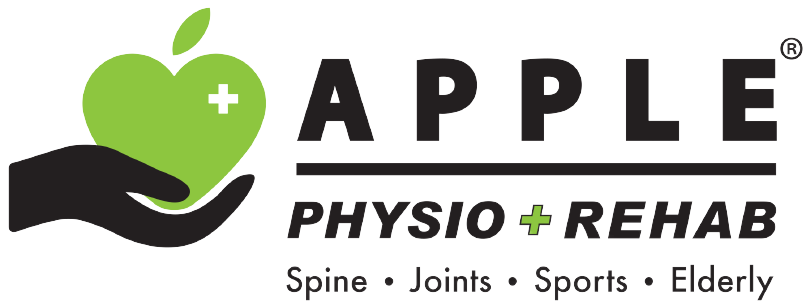Triathlon is like the ultimate fitness party, combining three of the most exhilarating sports into one epic race: swimming, cycling, and running. Visualise this, you start off diving into the cool, refreshing water, battling the waves and your fellow competitors as you swim a set distance. Just as your arms start to feel like noodles, you burst out of the water, strip off your wetsuit (that is if you’re wearing one), and hop onto your trusty bike. Now, it’s a high-speed chase on two wheels, pedalling through scenic routes, up challenging hills, and down thrilling descents. Finally, as your legs are about to give up, you switch to running shoes and hit the ground running, pushing through the final stretch on foot towards that glorious finish line.
Whether you’re a seasoned competitor or a newbie looking for a new challenge in Kuala Lumpur, triathlons provide an exciting way to test your fitness and have a blast doing it. This multifaceted sport demands not only physical stamina but also strategic training to ensure peak performance on race day.
While many athletes focus on building their strength and endurance, striking the right balance in training is crucial. Any form of too much or too little can significantly impact performance and overall health, leading to needing support and rehabilitation through accessible physiotherapy in Kuala Lumpur. Now, we are going to explore the world of triathlon training and explore how to find that perfect equilibrium.
What to Be Aware About Triathlons?
In the world of triathlons, training is a delicate dance between pushing your limits and allowing your body to recover. Finding the right training balance is essential for improving performance and avoiding injury. This balance ensures that athletes build endurance and strength without overtaxing their bodies, which can lead to burnout or injury.
Conversely, not training enough can leave you underprepared for the demands of race day, potentially leading to poor performance and a higher risk of injury. Therefore, understanding the dynamics of overtraining and undertraining is key to achieving your triathlon goals.
Overtraining occurs when an athlete trains excessively without allowing adequate time for recovery. This can be driven by a desire to constantly improve, leading to more intense and frequent workouts. On the flip side, undertraining happens when the athlete doesn’t put in enough effort or frequency in their training, which might stem from a lack of motivation, time constraints, or fear of injury. Both extremes can be detrimental, impacting not only physical health but also mental well-being.
The risks and side effects of overtraining are numerous and can be severe. Overtraining often leads to physical injuries such as stress fractures, muscle strains, and joint issues. The body’s immune system can become compromised, making athletes more susceptible to illnesses.
Mental health can also suffer, with symptoms of burnout, depression, and anxiety becoming more prevalent. Sleep disturbances and chronic fatigue are common, further exacerbating the physical toll on the body. Ultimately, overtraining can derail an athlete’s progress and keep them sidelined for extended periods.
Undertraining, while seemingly less dangerous, also poses significant risks. The most obvious is the lack of preparedness for the physical demands of a triathlon. This can lead to acute injuries during the race, such as sprains, strains, and overuse injuries.
Additionally, undertraining fails to build the necessary cardiovascular and muscular endurance, leading to poor performance and potential health risks associated with sudden, intense physical exertion. Psychological effects, such as decreased confidence and increased anxiety about race day, can also emerge, negatively impacting overall performance.
How to Know if You Are Either Overtraining or Undertraining?
So, how can you tell if you’re overtraining or undertraining? Monitoring your body and performance is key. Signs of overtraining include chronic fatigue, persistent muscle soreness, frequent injuries, and a plateau or decline in performance despite increased training.
Mood changes, irritability, and loss of motivation are also red flags. If you find yourself dreading workouts or feeling mentally exhausted, it might be time to dial back and focus on recovery.
On the other hand, if you’re undertraining, you might notice a lack of progress in your endurance and strength. Consistently feeling unchallenged by your workouts or experiencing a decline in fitness levels are indicators. Struggling to complete race simulations or finding that your performance stagnates can also be signs that you need to ramp up your training. Keeping a training log and regularly assessing your progress can help you identify these patterns and make necessary adjustments.
To achieve the right balance, consider incorporating periodization into your training plan. This involves varying your training intensity and volume throughout the year to optimise performance and recovery. Including rest days and light training weeks can prevent overtraining, while strategic increases in intensity can help avoid undertraining. Listening to your body is paramount; if something feels off, it’s better to err on the side of caution. Always remember that a drop-by for the best session of physiotherapy in Kuala Lumpur or sports physiotherapy in Malaysia might just get you back on your feet.
As you have read until here, you would find that the right training balance in triathlon is vital for achieving peak performance and avoiding injury. Overtraining can lead to severe physical and mental health issues, while undertraining can leave you unprepared and vulnerable to injuries.
Regularly monitoring your body, incorporating periodization, and being mindful of your physical and mental state can help you navigate this balance. Remember, the goal is to arrive at race day feeling strong, healthy, and ready to tackle each leg of the triathlon with confidence.
Always listen to your body, incorporate variety and rest into your training plan, and regularly assess your progress to ensure you’re neither overtraining nor undertraining. With the right approach and facilitation from a recommended physiotherapy and rehabilitation centre in Malaysia, you can train smarter and not harder, to cross that finish line feeling triumphant!




